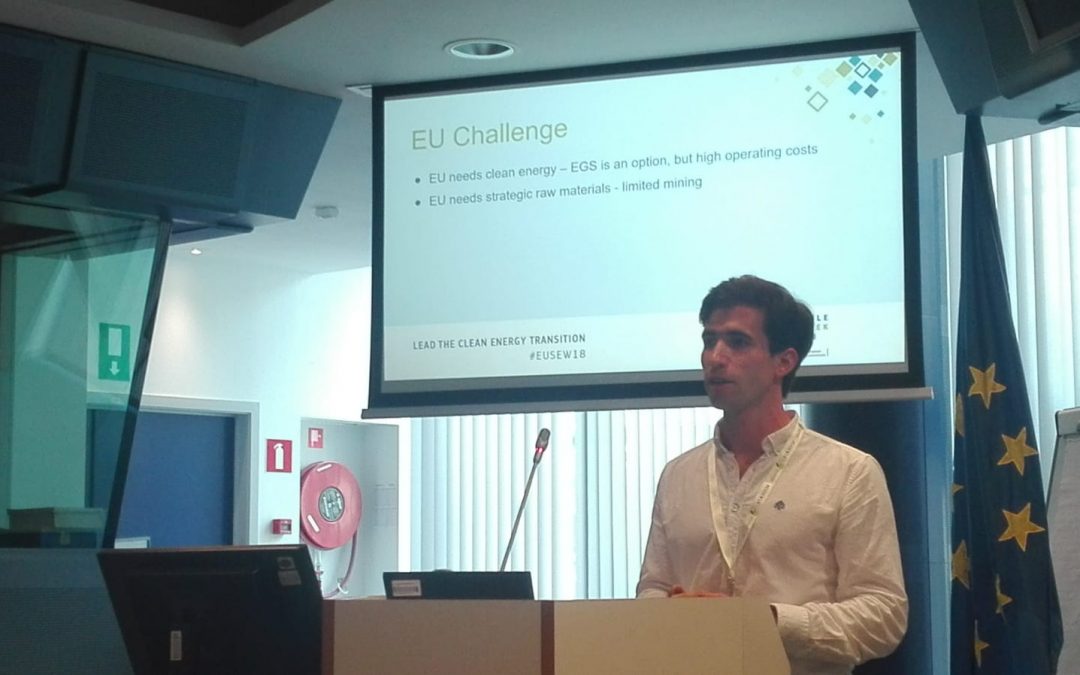The European Union’s Sustainable Energy Week (EUSEW) is the most important policy event dedicated to EU sustainable energy policy. Sessions are organised by the European Commission and energy stakeholders to debate policy developments and best practices on sustainable energy.
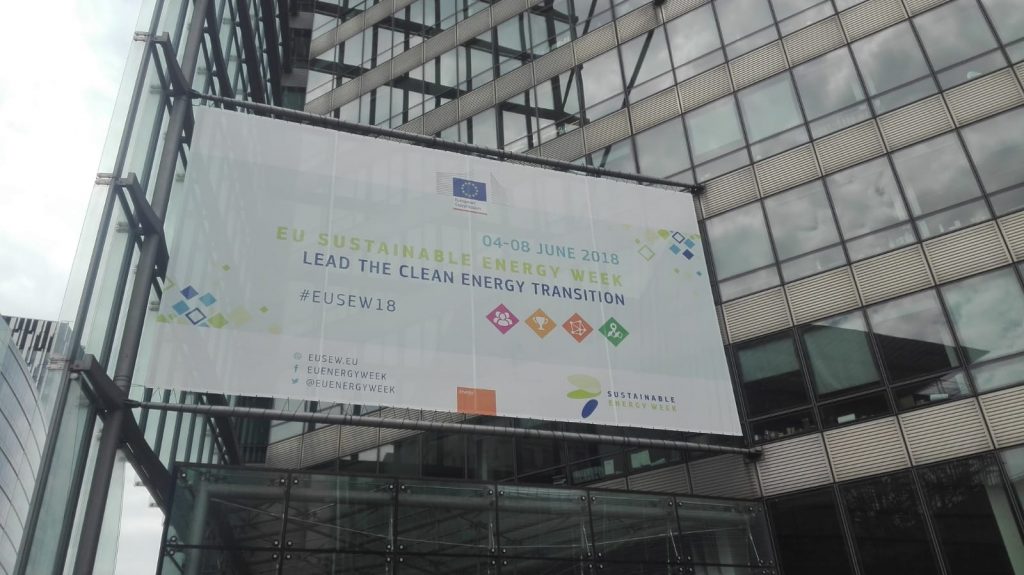
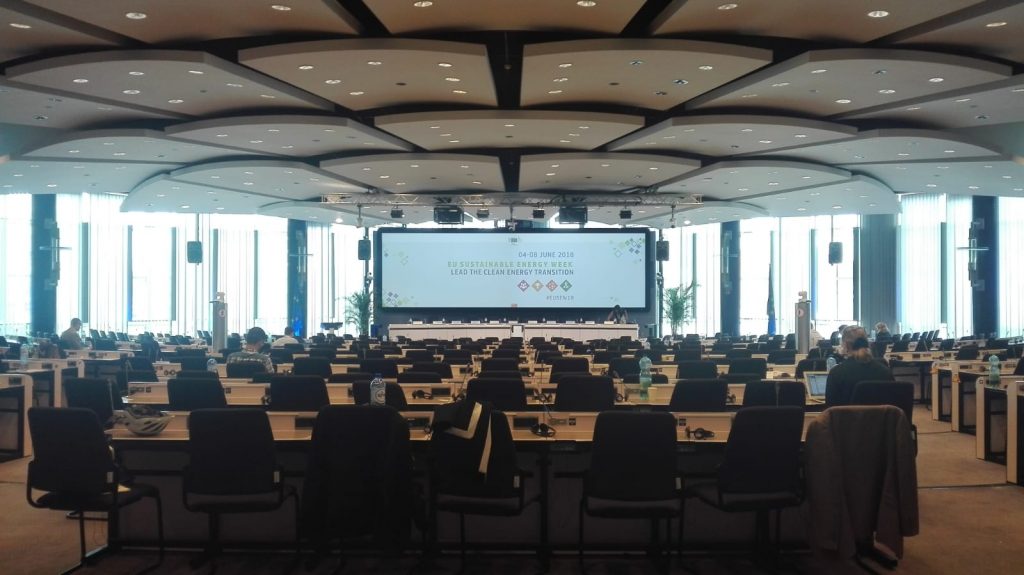
The CHPM2030 project was part of the EUSEW 2018 policy conference, on 7 June 2018, and took part in the session on “Decarbonisation of the heating and cooling sector: coupling efficiency and renewable with security of heat supply”. The session was moderated by Philippe Dumas, the Secretary General of the European Geothermal Energy Council (EGEC), and started with the keynote presentation of Eva Hoos from DG Energy who highlighted the importance of addressing together energy demand and efficiency for achieving the decarbonisation of the heating and cooling sector.
Tamás Miklovicz, from La Palma Research Centre, presented the CHPM2030 project to a full room. His presentation “Multidisciplinary approach for geothermal resources” focused on the two major challenges the EU is facing: supply of clean energy and strategic raw materials. He then explained how the CHPM2030 project is addressing these challenges through the development of a new technology that combines geothermal energy production and metal mining. Tamás Miklovicz presented the multidisciplinary approach of the project, as it is breaking down silos and creating synergies, involving both the mineral and the geothermal sector. He also emphasized how this technology reduces the costs of Enhanced Geothermal Systems (EGS). He went on explaining that this technology can produce not only power and heat, but also extract metals and stated that its mission is to create a proof of concept of the technical and economic feasibility at laboratory scale.
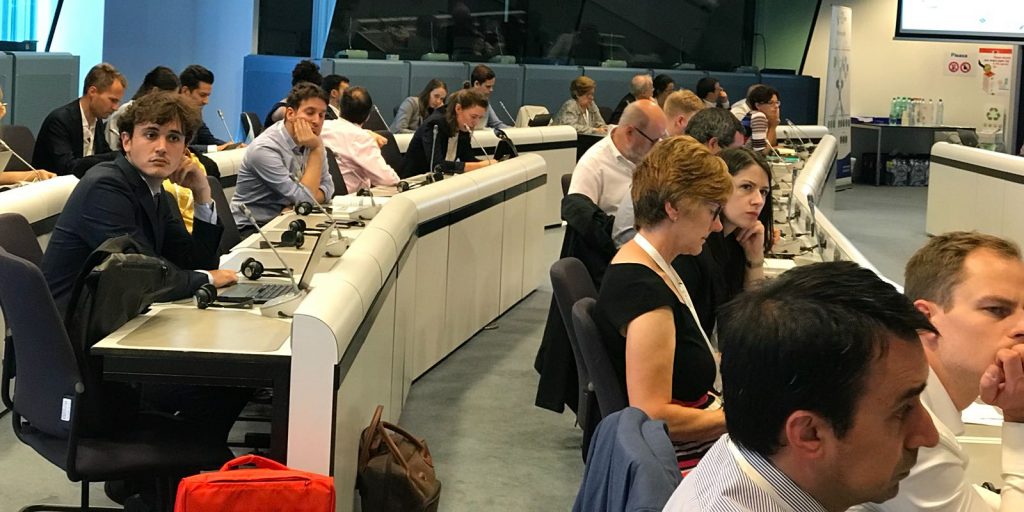
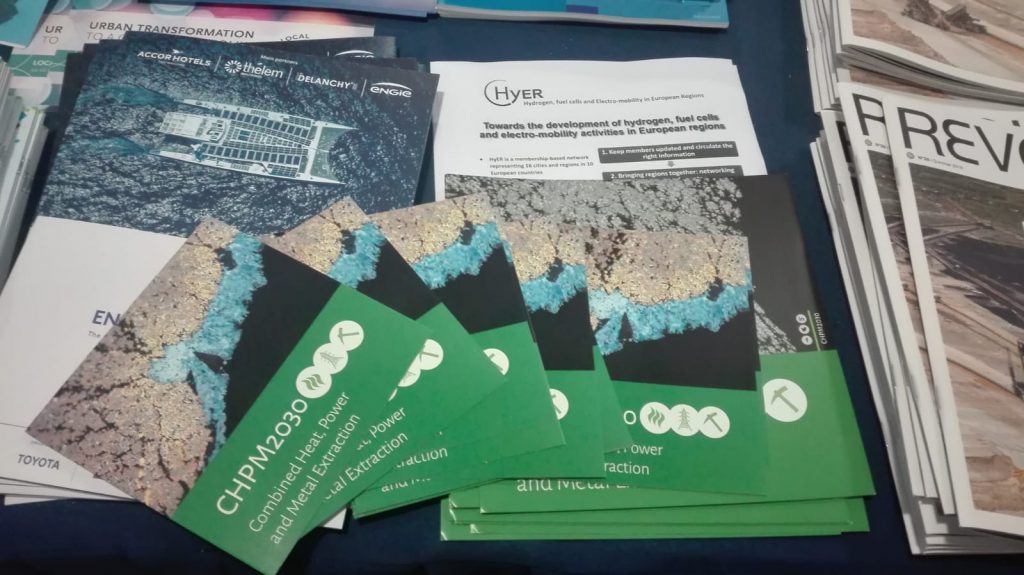
During the panel discussion, Anita Demény from the European Federation of the Geologists (EFG) explained the different aspects of the project in more detail, and gave an overview of the role of EFG and its Linked Third Parties in the preparation of a European outlook on prospective CHPM areas.
For closing the session, the different speakers and panellists discussed how to achieve the decarbonisation goals and the role of the different renewable energy sources in the future. Anita Demény and Tamás Miklovicz explained the importance the CHPM2030 project could have in the future for a low carbon society and for the supply of clean energy.
The CHPM2030 presentation at the EUSEW was a success and was received with a lot of interest by the participants of the session and allowed the CHPM2030 team to network with policy makers and NGOs that are working currently on the development of geothermal.

